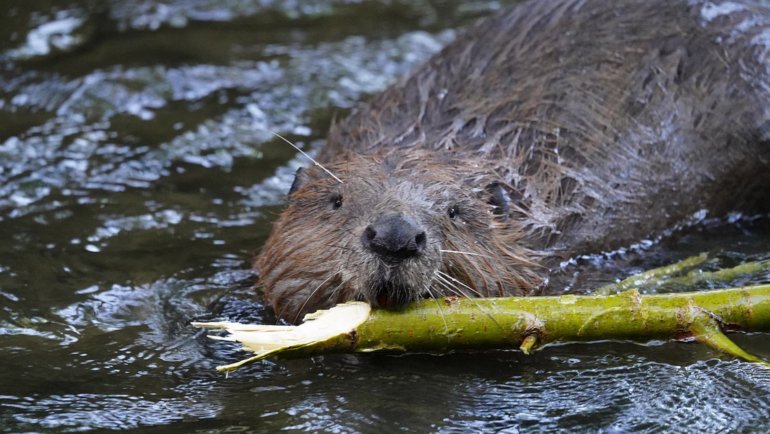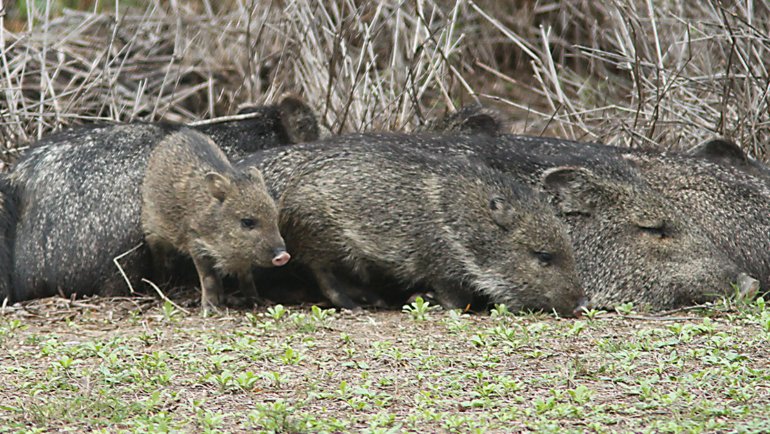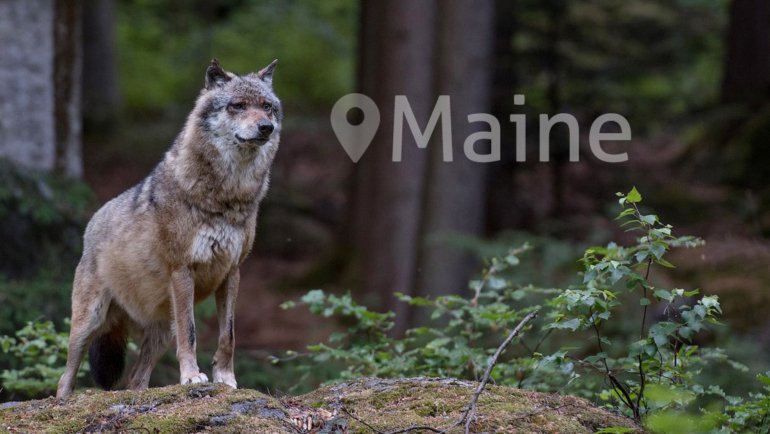When the winter season arrives, many animals adapt uniquely to survive the season. One such animal that has caught the attention of scientists and curious observers alike is the raccoon.
Raccoons are known for their sneaky yet adorable personalities, but what happens to them when snow blankets their habitat? It’s a fascinating question with an equally compelling answer.
Therefore, this article will explore this topic by addressing the main query of whether raccoons hibernate and how they survive during winter.
Do Raccoons Hibernate?
Contrary to popular belief, raccoons don’t hibernate in winter; they enter a state called torpor.
Torpor is a temporary reduction in an animal’s metabolic rate and body temperature, which helps it conserve energy during periods of low food availability.
During the fall months, raccoons eat more to build up their fat reserves for the winter. As temperatures begin to drop, their activity levels decrease, and they seek out warm, secure locations to spend the winter months. They will often share den sites with other raccoons to conserve body heat.
While in torpor, raccoons will wake up occasionally to eat stored food or forage for additional food if necessary. They may also move to different den sites if their current location becomes unsafe or uncomfortable.
Then, they develop an extra-thick fur coat to protect them from the chilly winter weather. The tail, which they may wrap around themselves in the cold, is where the fat accumulates most densely. Like a sleeping sack, this traps the body’s heat close.
In some parts of their range, raccoons may not enter torpor if winter temperatures are mild enough and food sources are readily available.
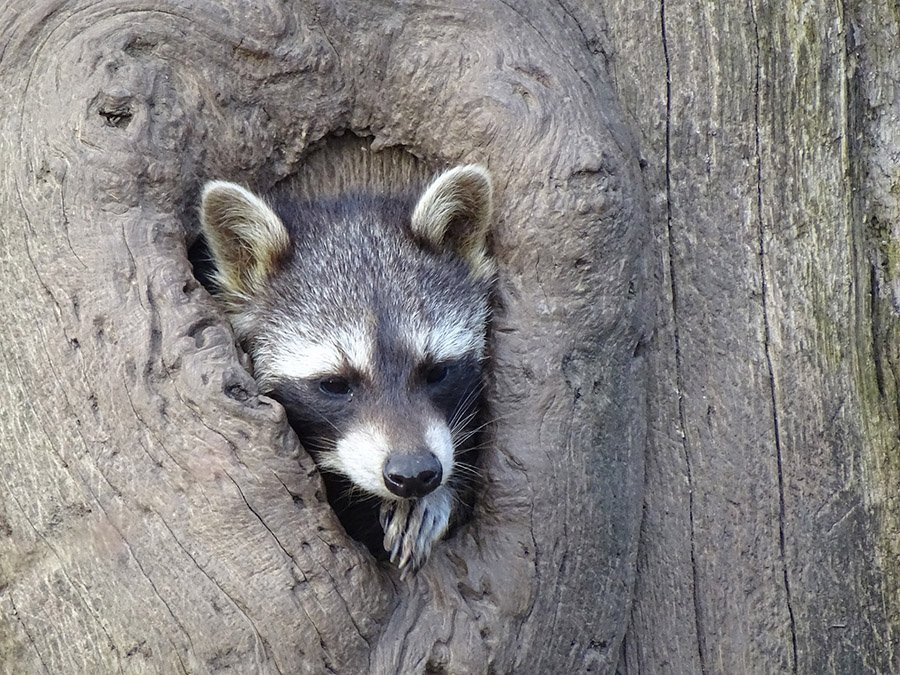
Where Do Raccoons Live During Winter?
Raccoons are primarily found in North America, where they live in various habitats, including forests, marshes, and urban areas. During winter, raccoons generally seek warm and secure locations to protect themselves from the cold weather.
In the wild, raccoons may seek shelter in tree hollows, logs, and other natural cavities. They may also burrow into the ground to create dens or use abandoned dens made by other animals, such as foxes or rabbits.
In urban areas, raccoons may take shelter in attics, chimneys, and other buildings, as well as in parks and other green spaces.
What Do Raccoons Eat In The Winter?
Raccoons are omnivores, which means they eat both plant and animal matter. In the winter, their diet may shift depending on their location and food availability.
In general, raccoons may eat a variety of foods during the winter, including:
- Fruits and nuts: Raccoons may forage for fruits and nuts still available in the winter, such as acorns, apples, and berries.
- Small animals: Raccoons are opportunistic hunters and may prey on small animals such as rodents, insects, and fish still active during the winter.
- Garbage: Raccoons are known to scavenge in urban areas, where they may find food in garbage cans and dumpsters.
- Pet food: In some areas, people may leave food out for their pets, such as cat or dog food. Raccoons are known to sneak and steal the food, which can provide a reliable source of nutrition during the winter months.
- Stored food: Raccoons are also known to raid gardens and steal stored food from homes, such as grains and vegetables, which can provide a food source during the winter.
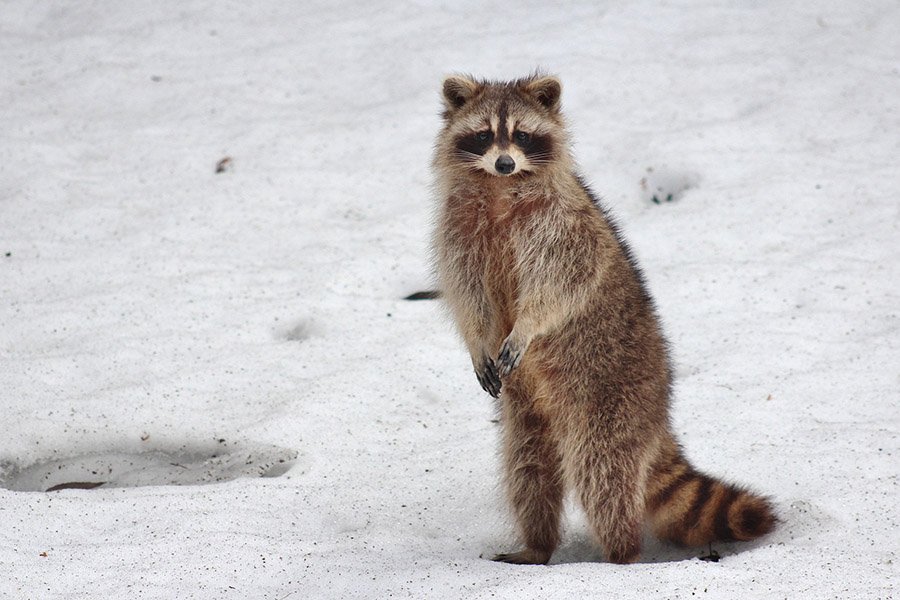
How Cold Is Too Cold For Raccoons?
These mammals are well-adapted to cold weather and can survive in various temperatures. Raccoons can typically survive temperatures as low as 15 degrees Fahrenheit (-9 degrees Celsius), but when temperatures drop below this, they may have difficulty finding food and staying warm.
The cold tolerance of raccoons will depend upon several factors, including age, body condition, and acclimation. For instance, older raccoons or those suffering from health issues might be less tolerant of cold temperatures than their younger or healthier peers.
It can decrease activity levels as they seek warmer environments like dens or burrows. These factors may also compromise their immune systems and reduce their resistance to illness and disease.
Also, when temperatures drop below freezing, raccoons may have difficulty finding water, leading to dehydration.
Final Thoughts
While raccoons may not hibernate like other animals, they can still survive the harsh winter months. Through their adaptations and behavioral changes, these mammals can conserve energy and find food sources, allowing them to make it through the winter and emerge in the spring ready for the warmer weather.

